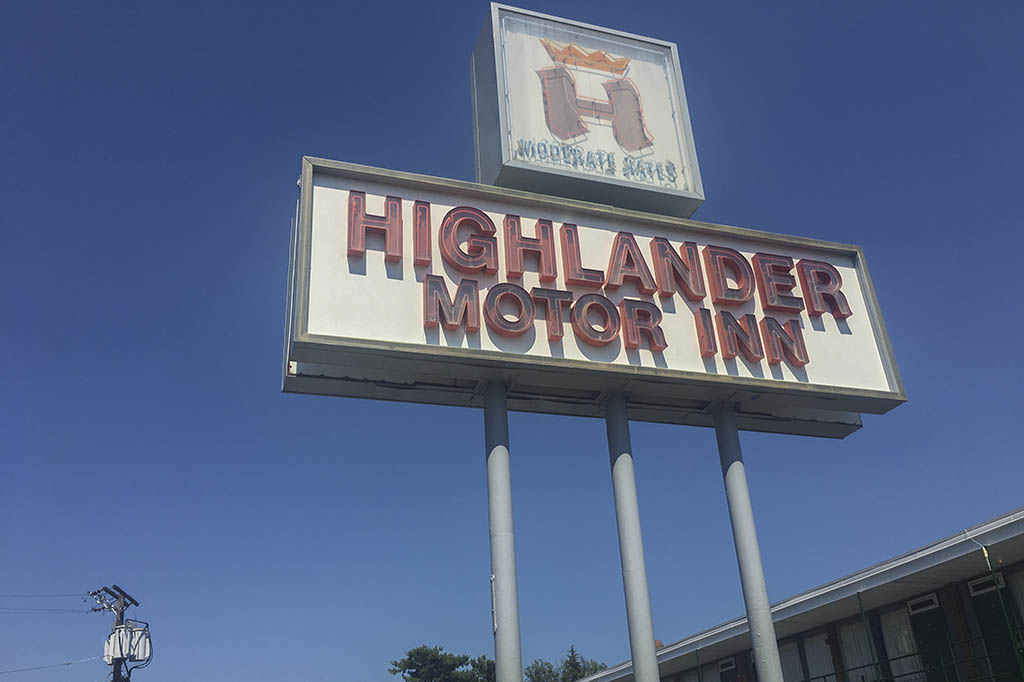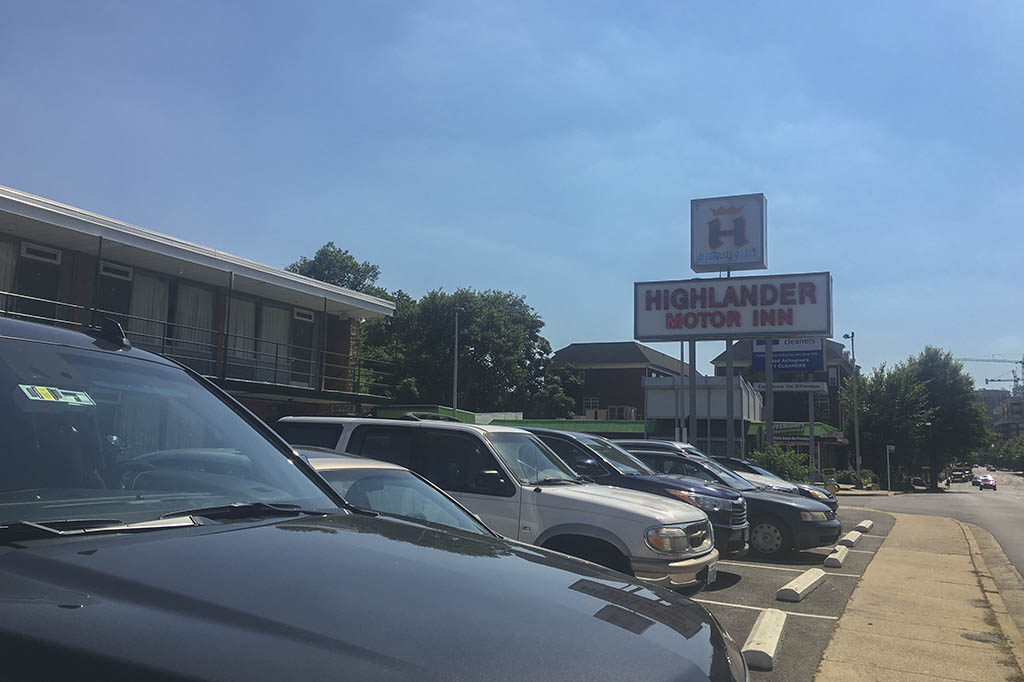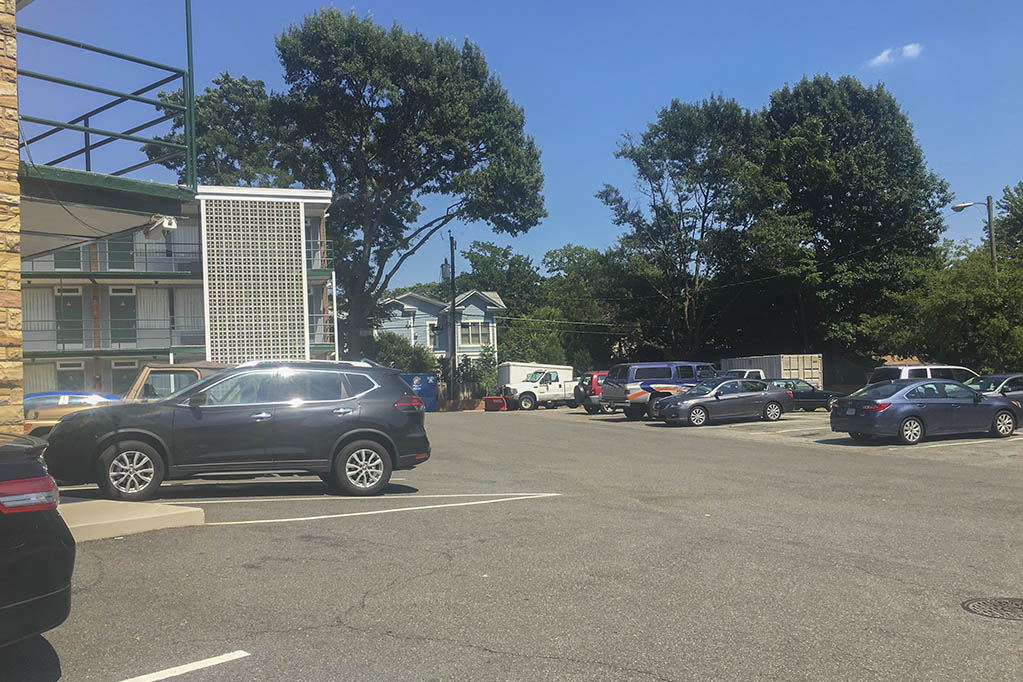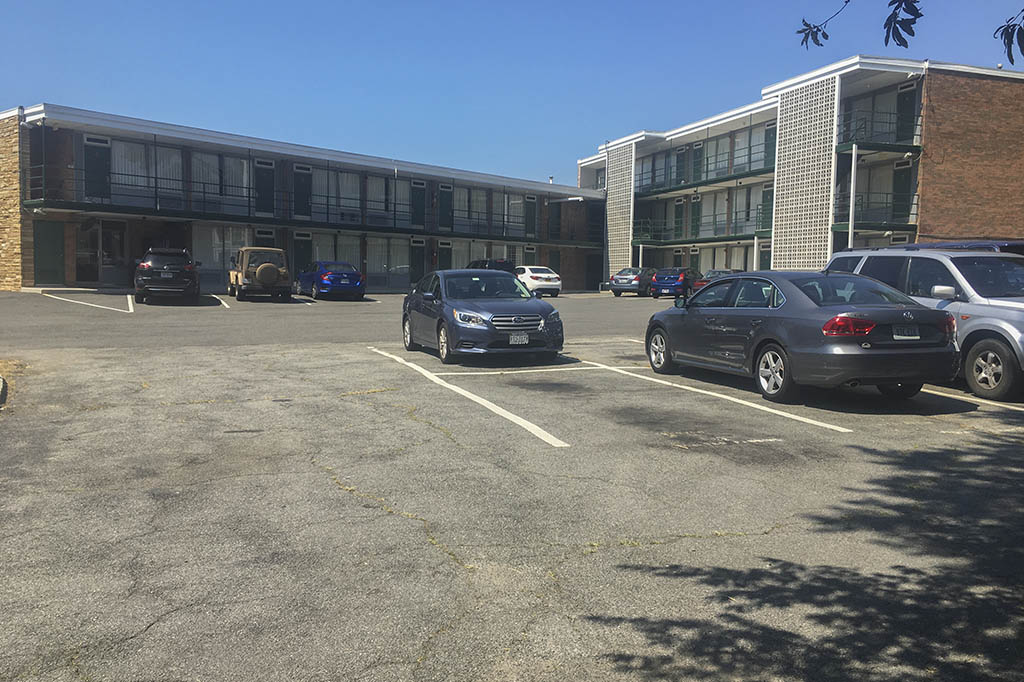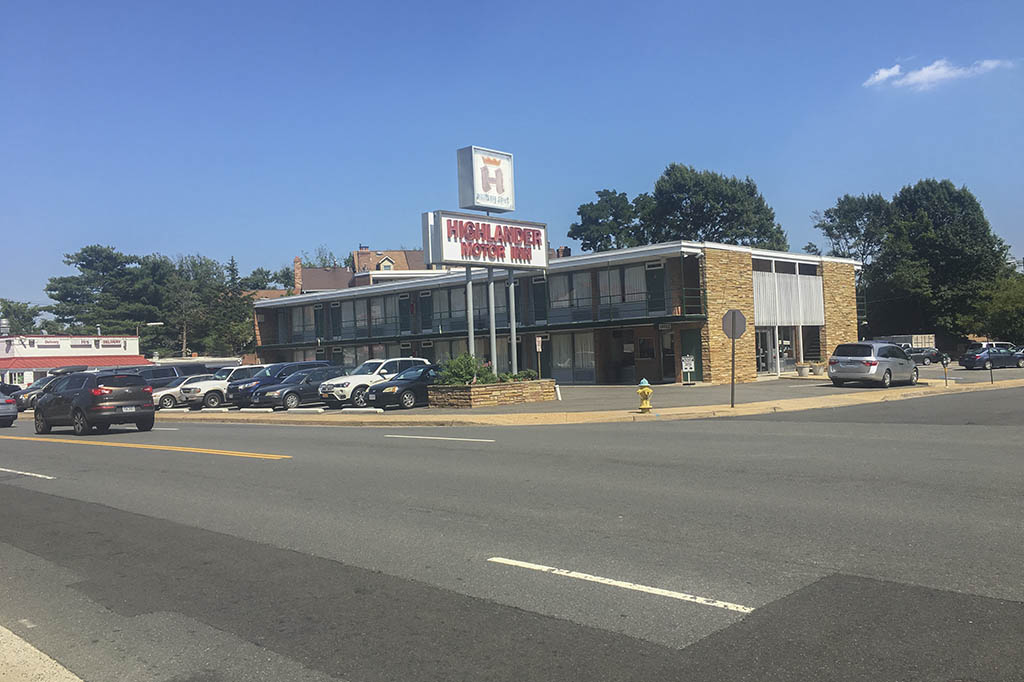The Virginia Supreme Court could soon decide the fate of the Highlander Motel near Virginia Square, as the property’s owner continues to push to redevelop the site.
Arlington County has been locked in a legal battle with local businessman Bill Bayne for nearly two years now over the property at 3336 Wilson Blvd, arguing that Bayne shouldn’t be able to use an existing parking lot for the same purpose after replacing the 55-year-old motel with a CVS Pharmacy.
The matter went before the county’s Board of Zoning Appeals in July 2016, and was twice considered by Arlington’s circuit court, with a judge ultimately deciding last year that Bayne should be able to move ahead with his plans. But Bayne says the county is appealing that ruling to the state’s highest court, which could drag out any redevelopment of the property indefinitely.
“There is no reason for them to fight it,” said Bayne, who also owns the Crystal City Restaurant and co-owns Crystal City Sports Pub. “There’s no upside benefit for them… You’re dealing with an old, outdated property that’s behind its time. It’s much better for a neighborhood to have a CVS than an old, beat-up hotel.”
Bayne hopes the Supreme Court will decide by late August whether or not it will hear the county’s appeal. If the court takes the case, Bayne fears it could drag out the process for “another year” or more, further endangering his already damaged plans to redevelop the property.
But even if the court rejects Arlington’s appeal, Bayne worries his deal with CVS has already likely “fallen apart.” He was set to sign a 50-year lease to bring the pharmacy to the site, bringing him close to $45 million over the term of the lease, and believes he may never engineer a redevelopment of the lot even if he emerges successful in court.
“There would’ve already been a CVS built and open, but they’ve dragged me through a legal process that’s taken years,” Bayne said.
County Attorney Steve MacIsaac did not respond to requests for comment seeking clarity on why the county is appealing the court’s ruling.
The county’s legal filings over the years suggest Arlington officials were concerned with the size of the pharmacy Bayne hoped to build, particularly on a site bordering residential neighborhoods just on the edge of Clarendon, even though county lawyers challenged the project on the basis of some arcane zoning laws.
The legal spat over the Highlander began when Bayne asked for permission from the county to use a parking lot just behind the motel on N. Kenmore Street as parking for the proposed CVS.
A county zoning administrator pointed out that the hotel’s owners received permission when the motel was built back in 1963 to use that lot as “transitional” parking, and never sought any subsequent zoning change. That same lot would help Bayne’s company meet the county’s parking requirement for a retail building of the CVS’s size, a shop that would essentially replace the motel in its entirety.
The county changed its zoning ordinance in 1983 to ban the use of transitional lots for meeting minimum parking requirements, as Arlington moved toward a more transit-focused mentality and officials viewed requests for large parking lots more skeptically. Accordingly, the zoning administrator rejected Bayne’s proposal, setting up a hearing before the Board of Zoning Appeals.
Board members pressed Bayne’s lawyers on whether he couldn’t simply shrink the proposed CVS and reduce the need for more parking. Land use attorney Evan Pritchard noted in the July 16, 2016 hearing that CVS viewed a smaller location as “no longer worth the trouble” of pursuing.
The Board unanimously denied Bayne’s appeal, arguing that the zoning administrator’s interpretation of the law was the correct one, even if such a distinction over parking lots seemed trivial.
“I’m not saying the proposed commercial use is a bad one, or that it even isn’t in the interest of Arlington County, but the County Board has written the zoning ordinance this way,” Board member Peter Owen said during the hearing.
Bayne appealed that ruling to the county’s circuit court, arguing in an Aug. 11, 2016 complaint that simply using the parking lot for a different establishment would not “change the character or intensity” of the property.
But in motions opposing Bayne’s appeal, county attorneys reiterated their historical zoning arguments and repeatedly cited the size of Bayne’s proposed CVS as a troublesome factor.
“It is as a result of the size of the CVS that all required parking can’t be located on the site,” assistant county attorney Christine Sanders argued in a trial on the matter.
In an Oct. 26, 2017 motion, Sanders also dubbed Bayne’s effort “an end run around the public process of a rezoning” from a residential designation to a commercial one, which “continues to foist upon the neighborhood a noxious use” of the property.
Retired Judge Alfred Swersky sided with Bayne, and denied the county’s subsequent request for another hearing, setting up a potential state Supreme Court fight.
Bayne says he “fully expects” to emerge victorious in the end, whether he’s ultimately able to realize his vision of a CVS on the property or not. He simply remains frustrated that this process has even dragged on for so long in the first place.
“It’s a good thing for the county, how can you argue with it?” Bayne said. “They’ve been told they’re wrong twice by a judge, why do you need to be told a third time?”


